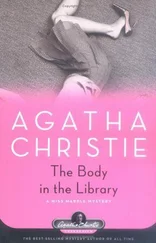‘Not so far. Like to come along? I’ll make you a cup of tea.’
Mr Brodribb rose.
‘That’s right,’ said his partner, ‘and there’s a nice pot of salmon paste I haven’t opened.’
During the drive she told him that her name was Edna, and asked for his. He gave it, with some reluctance; unnecessarily, since she disliked it and elected to call him George as before.
But the room into which she led the way surprised Mr Brodribb from his brooding. It was small and tidy.
Mr Brodribb watched her preparations for tea through a cloud of thought. Where, he asked himself, could he find a correspondent more suitable in every way? Impulse overcame him; and as she handed him the cup he made his suggestion.
Edna doubted, mocked, required assurance, read the ultimate letter from the solicitor, and was convinced.
‘It would have to be some hotel,’ said Mr Brodribb, ‘so as to get the servants’ evidence. I dare say you know of some place.’
‘Well, I do,’ she responded without enthusiasm, ‘but they’re not what I’d call very nice. What’s this place like you’re in?’
Mr Brodribb described ‘Melrose’ at some length. She pondered.
‘Sounds the sort of place I’d like,’ she said at last. ‘I’m sick of these flash hotels. Everybody knows what you’re there for. Now, what I’d liked be some nice quiet boarding-house, or somewhere like that, just for once in a way.’
Mr Brodribb, too, had been pondering. What, after all, was ‘Melrose’ to him? No final refuge, since he would have to leave as soon as the case came on. There was a vacant room next to his own.
‘But it would have to be as my wife,’ said he, thinking aloud.
‘Well, rings are cheap,’ she answered, unperturbed.
A week later Mr Brodribb introduced a small mouse-coloured woman to ‘Melrose’ as his wife; he let it be understood that they had been married some months ago, but that Mrs Brodribb had been nursing a sick mother in the country.
The good time ended by reason of financial pressure. Mr Brodribb, assessing his expenses for the half-year, which included two homes, a retaining fee for Edna, and a month of junketing for two, decided that the experiment could no longer continue. Edna approved.
Mr Brodribb gave notice to the proprietress that they would leave in a week’s time, and sent a letter with the same information to the solicitors. At the prospect of losing them, upper ‘Melrose’ showed tepid surprise; nether ‘Melrose’ lamented, prophesying wrath to come, boarders in their stead who would be neither tidy, civil nor generous. For the guilty couple, grateful to the establishment which had sheltered their idyll, had no way save one of showing gratitude. On the night before their departure Ivy and Queenie were summoned. Each received garments from Edna, and from Mr Brodribb largesse. Queenie and Ivy, dismissed, descended to the kitchen almost in tears, declaring to the cook that never again would ‘Melrose’ see the like of the Brodribbs, and vowing eternal regard. Upstairs, Mr Brodribb, on his knees beside his suitcase, looked up to find Edna standing by him, a parcel in her hand.
‘What’s this?’
‘It’s just a little thing I got for you,’ Edna replied, ‘to look nice on your mantelpiece.’
He unwrapped the gift, revealing a brown plaster monkey six inches high, dressed in striped bathing drawers and playing the fiddle left-handed. The pedestal on which it stood was pierced with holes.
‘For pipes,’ Edna explained. ‘Cute, isn’t it? How ever they think of these things I don’t know.’
Mr Brodribb, overcome, acknowledged her thought for him and the genius of the inventor.
‘It hasn’t been such a bad old time, has it?’ he asked wistfully.
‘I believe you,’ Edna replied. ‘As good as a trip to the sea. You tell your wife from me she doesn’t know a gentleman when she sees one.’
They left next morning, some two hours before the arrival of a young man who made inquiries. This young man, having told his errand, and assured the proprietress, anxious for the good name of ‘Melrose’, that only servants’ evidence would be required, sent for Ivy and Queenie, whom he interviewed in her presence. He questioned them, took notes, made clear their duty, and within twenty-five minutes departed. He was a brisk young man, who now and then sacrificed other things to promptness, and he did not on this occasion take time to observe the demeanour of the witnesses, which was, to say the least, reluctant. But three months later, when the case of Brodribb v. Brodribb and Another was called, he and his employers had cause to regret this economy of time.
For plaintiff’s counsel, seeking to establish the facts of Mr Brodribb’s desertion and adultery, met with a check when he called upon Ivy Blout to prove that Mr Brodribb had for weeks lived in an intimacy unsanctioned by law. Having ascertained her name, age and calling, he suavely inquired:
‘You were housemaid at this address from October 5th last until December 10th?’
‘Yes, sir,’ Ivy replied.
‘During that time was the defendant a paying guest in the house?’
‘I don’t know.’
Counsel halted, staring.
Ivy, contemplating Mr Brodribb, repeated without hesitation or haste:
‘I don’t know that gentleman.’
‘You lived in the same house, in constant attendance on this man for weeks, and you say you don’t recognise him?’
‘No, sir.’
Counsel took another tack.
‘You understand that you are on your oath?’
‘Yes, sir.’
‘Do you quite understand what is meant by perjury?’
‘Telling lies.’
‘Telling lies on oath, yes. A serious offence, punishable by imprisonment. Do you still insist, on your oath, that you don’t know the defendant?’
‘Yes, sir.’
‘Why do you suppose you were brought here into court at all?’
Ivy, for the first time, permitted herself a smile.
‘I really couldn’t say.’
He fared no better at the hands of Queenie; words, questions and threats alike broke in spume against her unshaken gratitude. At last, on a note from his instructors, he sat down. There was a chill pause, into which the ironic comments of the judge fell softly as snowflakes. The case was dismissed.
On their way home, in the ’bus, Queenie said to Ivy:
‘That was ’is wife, her in the blue hat. Think of it; sitting there with a face like that, and trying to get rid of that nice little feller.’
‘Cheek!’ Ivy agreed. ‘She ought to be thankful for a husband like him. Whatever Mr Brodribb’s done,’ said Ivy, ‘he’s a real gentleman, and they don’t get their dirty evidence out of Ivy Blout.’
In the restaurant off Fleet Street where they had met as arranged Mrs Brodribb lamented to Arthur:
‘Now what? Do I have to take him back?’
‘Not him,’ said Arthur. ‘We’ll get more evidence, other witnesses. Prosecute these witnesses. Whatever can have happened I don’t know, but it’s not his fault, I’ll bet. He’s been having no end of a time on his own.’
‘Yes; well, if that’s how he’s been going on,’ said Mrs Brodribb with decision, ‘he’d better come home. I’m not going to be made a laughing-stock again. Going over it all again, and the same thing happening, most likely. Like trying to get a number on the telephone.’
‘That’s your look-out,’ Arthur answered, hurt, but jaunty. ‘If you like to take him back slightly soiled, you’re welcome.’
‘Oh, Arthur,’ said Mrs Brodribb, suddenly overcome, ‘and we’d even chosen the bedroom suite.’
Lunching alone in a chop-house in the city, and waiting for his cheese, Mr Brodribb thought with affection of a brown plaster monkey in bathing drawers, playing the fiddle left-handed; then, suddenly recollecting, of a hot-water bottle, dressed in tiger skin, which, after only five months’ use, had begun to leak at the seams, and which Prosser’s, according to their guarantee, were obliged to replace without charge. He made a note on his cuff there and then.
Читать дальше











